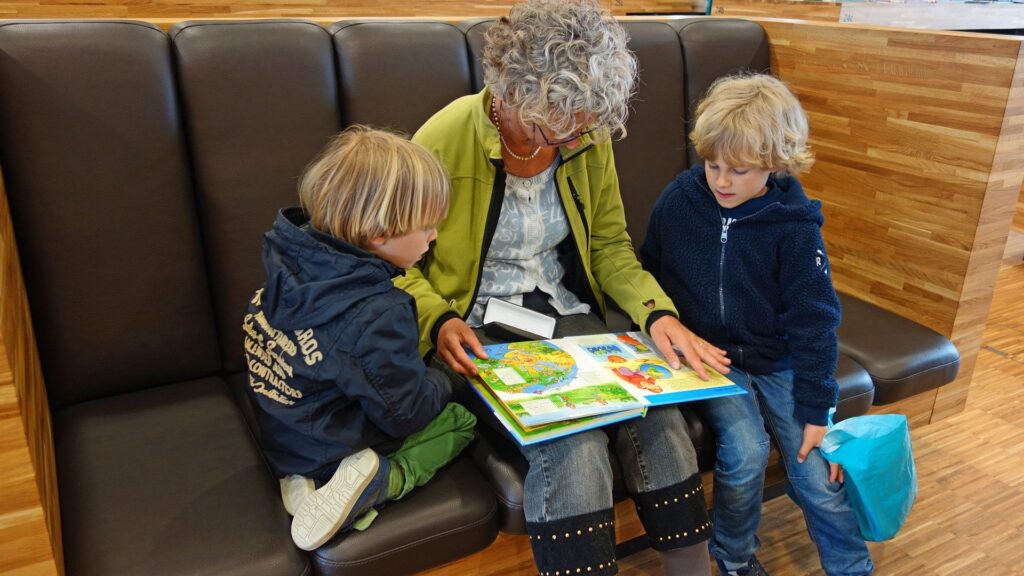How Homeschooling Fosters Personal Growth
By Sofia Ferrer
“Should I opt for public school for my kids, just as every other parent does?” parents ask themselves. “Should I take a risk and homeschool my kids? What’s best?” Every parent worries about his or her child’s future, and a major piece of the “future” puzzle is education. They may consider homeschooling because of its flexibility, increased safety, and better quality of education, but they may wonder if that is enough justification to take the risk. Maybe. However, if homeschooled students grew to be passionate, initiative-taking, open-minded young adults, ready to ace school and life, that would probably convince more parents. Homeschooling does just this: it fosters personal growth. Unlike public school, which simply gives students academic resources so that they can graduate, homeschool addresses the student as a whole—academically and personally. Homeschooling gives students the future and life that parents want for them.

Homeschool’s free nature rather than public school’s obligative mindset allows students to grow to be passionate individuals who learn for the sake of learning. For public school students, the classroom is the classroom. They must unwillingly wake up at six a.m. every morning, gulp down breakfast in seconds, scramble to the bus, and remain stuck in a classroom with whatever courses they are provided for the rest of the day, every day. This undoubtedly makes students feel forced. Learning becomes an obligation. Obligation does not foster passion; freedom does. For homeschooled students, the world is the classroom. They travel and learn about different cultures, they visit historical sites, and they debate with interesting classmates.
They can choose which courses to take, dull or exciting, simple or challenging. For homeschoolers, learning is not an obligation but an open exploration. Thus, a homeschooler interested in the human mind and behavior will take an AP Psychology course. A bilingual Spanish-speaking student will not take four years of Spanish to opt for the easy way to college; he will take Mandarin because of his passion for it, as well as its world-wide applicability. Homeschoolers learn because of passion, and they take this passion with them throughout their lives.
Passionate students are geared towards success, but passionate, initiative-taking students achieve success; homeschooling pushes students to take initiative. Homeschoolers enter the homeschooling world as vulnerable individuals. They have to handle the stereotype that “homeschoolers don’t do enough” and have to find ways to connect socially with classmates; public schoolers do not have to deal with these pressures. Thus, homeschooling encourages students to push themselves to overcome this stereotype and to find unique ways to interact with classmates. Consequently, they form study groups, arrange live calls, ask questions, and answer questions. They do what they can to learn effectively and have friends. Homeschool parents also have their share in vulnerability, facing criticism from society and possibly their own family; they thus further push their students. On top of this, homeschooled students are in a competitive environment with other homeschoolers that seek the challenge and aim for the highest, so students feel motivated to push their limits to achieve high goals. Thus, homeschooled students emerge from school as leaders ready to take initiative to make the most out of everything.
With passion and initiative, a student can get far in life. However, a major part of personal growth is the selfless acceptance and respect for others and their ideas. American public schools feature cliques and peer pressure, both of which encourage close-mindedness; instead of teaching students to accept and listen to everyone, it teaches them to fit into a mold and only accept those who fit in as well. Also, homeschooled students are more exposed to classmates around the world, with various cultures and ideas. Public schooled students are limited to people from their local region while homeschoolers, who may either study online or with various homeschool groups, may meet people on the other side of the ocean. A homeschooler may contact friends from Spain, or Africa, or China, and learn about their friends’ different cultures; when they debate or converse with these friends, they are naturally exposed to these friends’ different views and ideas. This already helps students get used to diversity and acceptance, but on top of this, homeschooling unifies this diversity; while students may share different ideas, values, and traditions, they are all connected since they all chose the controversial step of homeschooling. They went beyond social norms and faced criticism and possibly ostracism, but they did it together. The exposure to diverse people encourages open-mindedness while the connected web that unites them makes it easier for students to become open-minded and to listen to and accept new ideas.

Thus, homeschooling fosters personal growth in students, raising them into passionate learners, energetic leaders, and accepting, open-minded individuals. These students will be able to take on tasks, roles, jobs, and adventures with ease and passion, all while giving to and receiving from the world around them. These students will be able to conquer school, and life.






